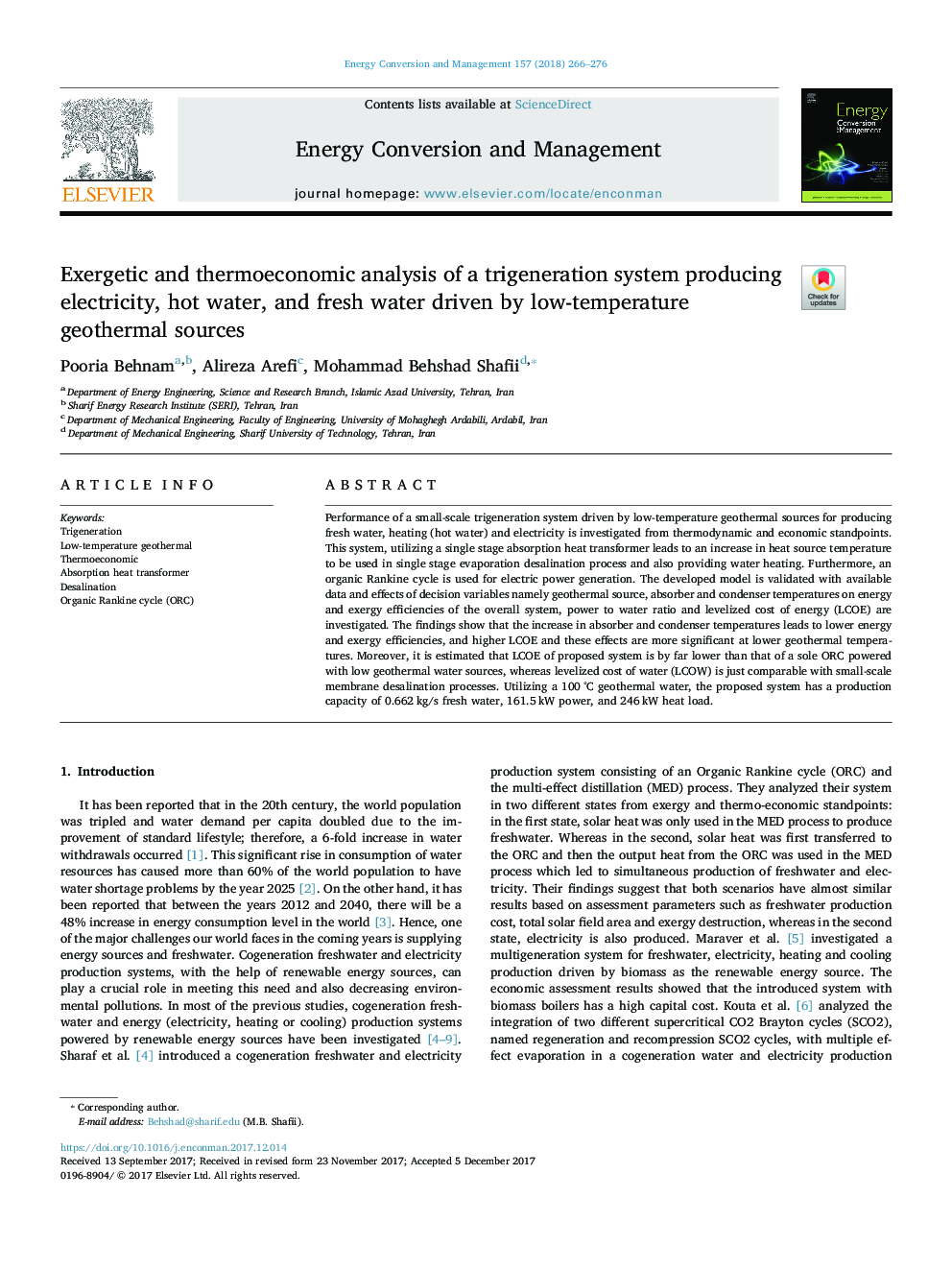| Article ID | Journal | Published Year | Pages | File Type |
|---|---|---|---|---|
| 7159237 | Energy Conversion and Management | 2018 | 11 Pages |
Abstract
Performance of a small-scale trigeneration system driven by low-temperature geothermal sources for producing fresh water, heating (hot water) and electricity is investigated from thermodynamic and economic standpoints. This system, utilizing a single stage absorption heat transformer leads to an increase in heat source temperature to be used in single stage evaporation desalination process and also providing water heating. Furthermore, an organic Rankine cycle is used for electric power generation. The developed model is validated with available data and effects of decision variables namely geothermal source, absorber and condenser temperatures on energy and exergy efficiencies of the overall system, power to water ratio and levelized cost of energy (LCOE) are investigated. The findings show that the increase in absorber and condenser temperatures leads to lower energy and exergy efficiencies, and higher LCOE and these effects are more significant at lower geothermal temperatures. Moreover, it is estimated that LCOE of proposed system is by far lower than that of a sole ORC powered with low geothermal water sources, whereas levelized cost of water (LCOW) is just comparable with small-scale membrane desalination processes. Utilizing a 100â¯Â°C geothermal water, the proposed system has a production capacity of 0.662â¯kg/s fresh water, 161.5â¯kW power, and 246â¯kW heat load.
Keywords
Related Topics
Physical Sciences and Engineering
Energy
Energy (General)
Authors
Pooria Behnam, Alireza Arefi, Mohammad Behshad Shafii,
